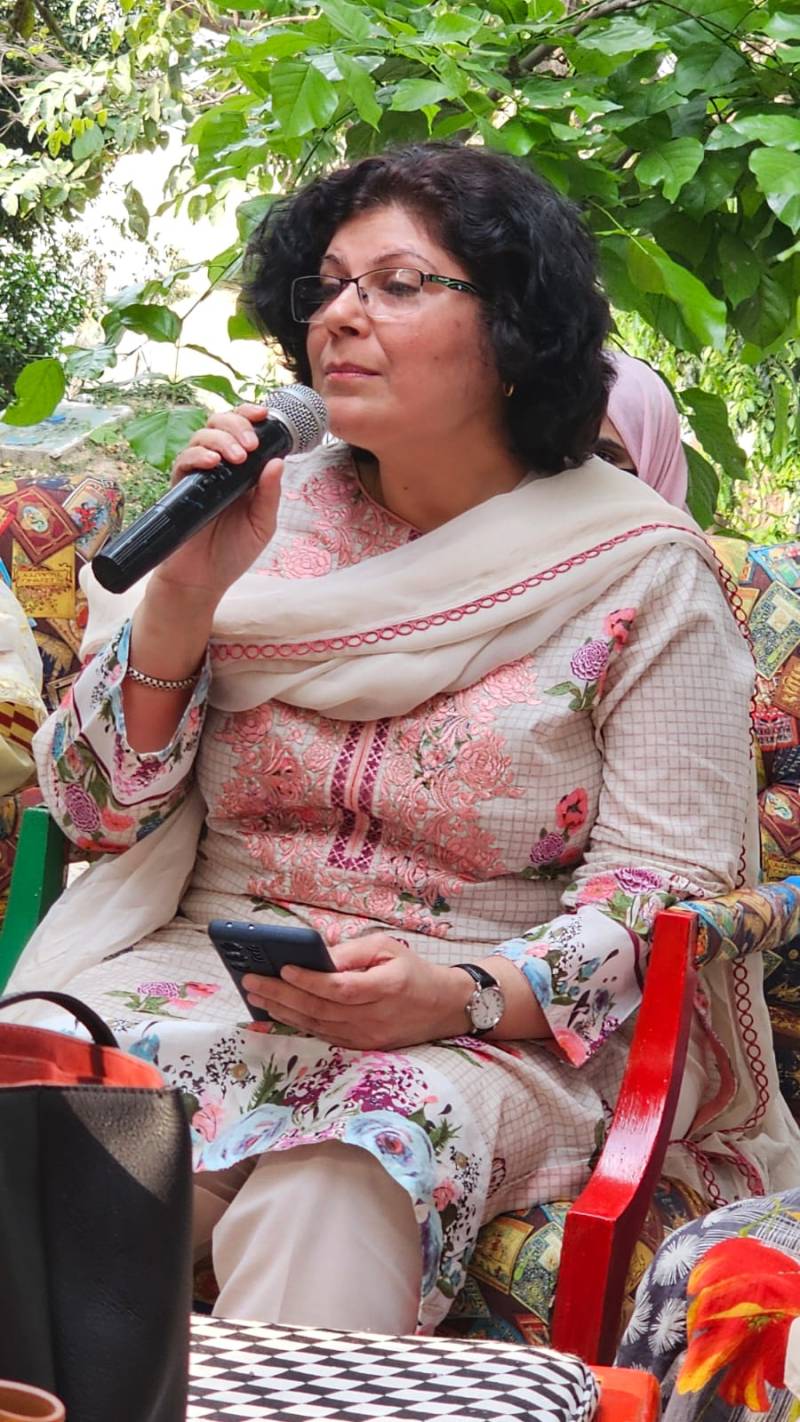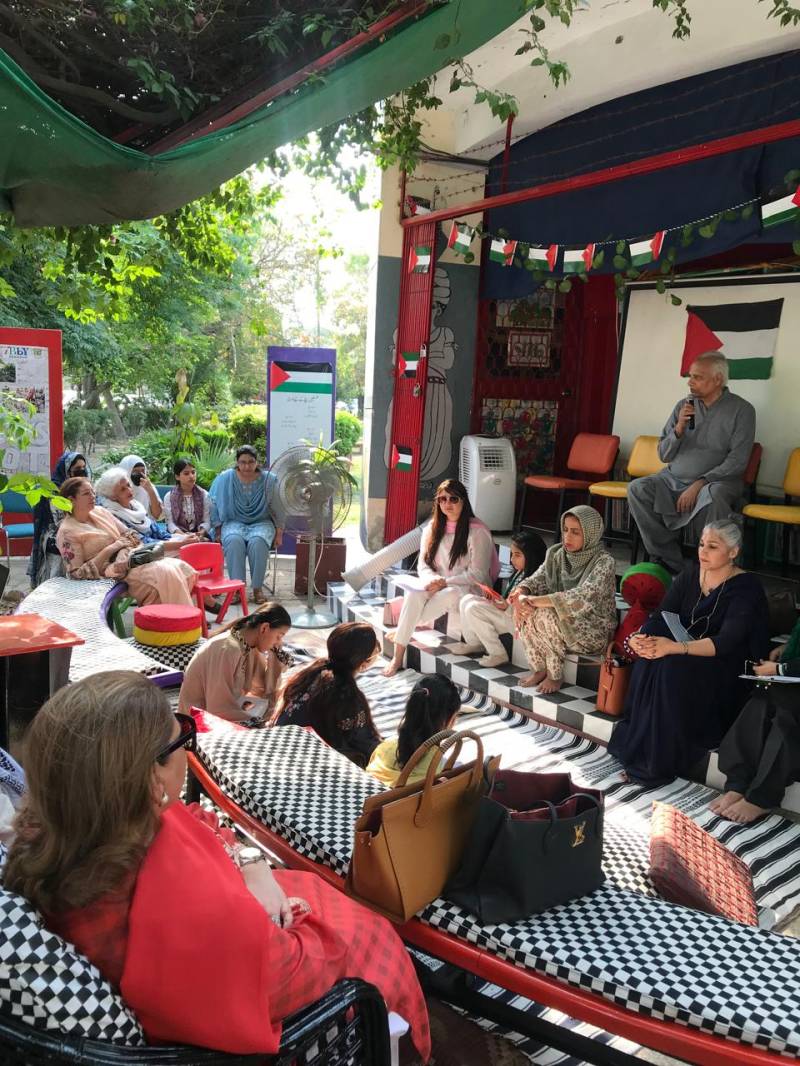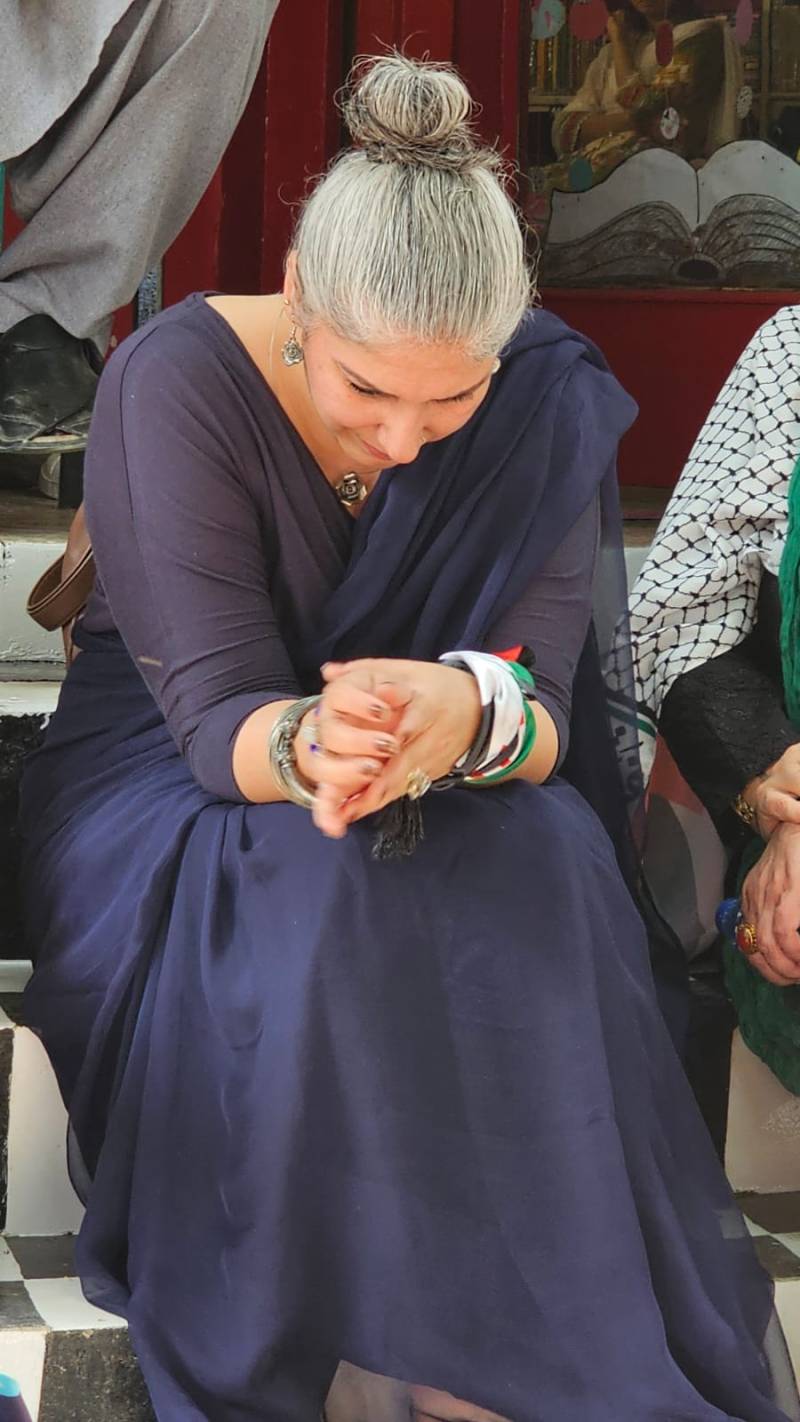https://thefridaytimes.com/29-Apr-2024/gaza-monologues-at-lahore-s-alif-laila-library
Gaza Monologues At Lahore's Alif Laila Library
"I arrived home shaken, with an entirely new perspective on the readings I had just heard"
Don’t cry child,
Your mommy has only just
cried herself to sleep
(Faiz Ahmad Faiz)
A session of the Gaza Monologues was held at the Alif Laila Library in Gulberg on Friday. The monologues are an initiative of Ajoka Theatre, consisting of readings of prose and poetry translated from Arabic, in the poignant words of the children of Gaza, speaking of a war that destroyed the region on the eastern coast of the Mediterranean Sea, bordered by Egypt and Israel.
This session was held in collaboration with the Alif Laila Book Bus Society, an organisation that for almost 40 years has provided the book-starved children of Pakistan with a wonderful selection of reading, free of charge - and “Suno Kahani Meri Zubani,” a much-needed effort to promote Urdu reading among children in our own country.

Going home after the event we were caught in a ferocious storm, lowering black clouds, and winds that made hoardings boom and flutter alarmingly upon their poles. Then the rain came down, making it almost impossible to see what lay ahead. This was followed by the worst hailstorm I have driven through. Large hailstones thundered down upon the car, and the prospect of them shattering the windscreen was terrifying real. I arrived home shaken, with an entirely new perspective on the readings I had just heard. If I, an adult living in relatively peaceful surroundings had been so intimidated by those sounds and events on the way to a safe home, what were the people – including the children of Gaza – going through? Can anyone say what a child goes through when he loses his parents?
Don’t cry, child
Just a while ago
Your daddy took leave of all his sorrows

It must be terrifying to live in a place that is prey to the vicious rapacity of a neighbouring country which has the inexplicable backing of the powers that be
What are the people of Gaza going through? That question was addressed most effectively at the event at the library by members of the three organisations mentioned above, by young Paarsa Sarmad, and others. We heard about how children are terrified of losing their family and friends to the bombs that rain around them like so much deadly hail; that they really do lose them and find themselves suddenly bereft of all that they held dear and took for granted. They have no idea of what lies ahead, of whether or not they will live to see the future if it comes.
The hail on my windscreen did not actually shatter it, it simply left me shaken.
What can the condition of those people be, whose homes are actually shattered and burnt, whose parents, children and relatives are found in pieces in the midst of surroundings that once gave them peace and love? “No, I don’t know who that belongs to, that shattered bone that ends in a shoe. I recognise the shoe, though. It belonged to my brother. He will be back soon from his friend’s house.”
Don’t cry, child
Your brother has gone to another land,
Chasing after his butterfly dreams

It must be terrifying to live in a place that is prey to the vicious rapacity of a neighbouring country which has the inexplicable backing of the powers that be. To be surrounded by sounds of bullets and bombs that are far louder and far more ominous than the rattling of hoardings in a storm, sounds that mean the destruction of every happiness hoarded inside the heart, the death of all security that one leant on and slept with.
Don’t cry, child
Your sister has married
and left for another country
We heard about young Huzaifa, and how he found himself bereft in the midst of the war, and how so many of the people of Gaza have no choice but to scrounge for food from the trash thrown away around the city.
Maybe if you smile
They will one day all return
In a different guise
To play with you
We can only hope. And pray. And support the endeavours of people and organisations that do as much as they can help and to raise our awareness about the tragedy and devastation that is unravelling in Gaza.
Given our lives of safety and security, it is no surprise that it is hard for us to visualise the despair and pain that others go through. Hearing it in their words helped. And hurt.


